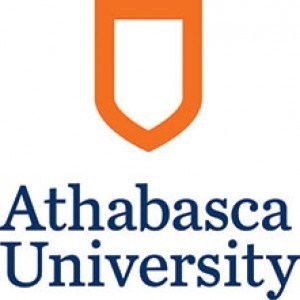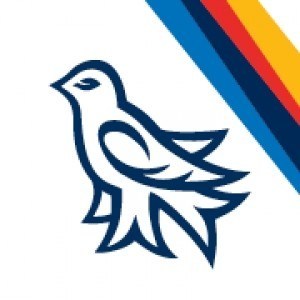Photos of university
The Bachelor of Arts and Science degree at Athabasca University offers a comprehensive and interdisciplinary undergraduate program designed for students seeking a flexible and personalized educational experience. This program allows students to explore a wide range of subjects across the arts and sciences, fostering critical thinking, analytical skills, and creative problem-solving abilities. Through a carefully curated curriculum, students can tailor their studies to align with their academic interests and career goals, choosing courses from diverse disciplines such as humanities, social sciences, natural sciences, and mathematics. The program emphasizes independent learning, research, and practical application, preparing graduates for various professional paths or further academic pursuits. Athabasca University's online delivery model enables students to study from anywhere, providing the convenience of flexible scheduling and self-paced learning. The Bachelor of Arts and Science degree is ideal for individuals who value interdisciplinary knowledge, intellectual curiosity, and the opportunity to develop a broad skill set that combines the strengths of both arts and science backgrounds. Graduates of this program will have developed strong communication, research, and analytical skills, equipping them to succeed in dynamic work environments or to continue their education through advanced degrees. This degree reflects Athabasca University's commitment to accessible, innovative, and high-quality education designed to meet the needs of diverse learners worldwide.
The Bachelor of Arts and Science program at Athabasca University offers a versatile and interdisciplinary educational experience designed to provide students with a broad understanding of both arts and science disciplines. This program emphasizes critical thinking, analytical skills, and the ability to synthesize knowledge across multiple fields, preparing graduates for diverse careers in an increasingly complex world. Students in this program can choose from a wide range of courses in arts and science subjects, allowing them to tailor their educational pathway to their personal interests and professional goals. The curriculum includes foundational courses in areas such as humanities, social sciences, natural sciences, and mathematics, complemented by more specialized courses that enable students to develop expertise in specific domains. Through a flexible, online delivery format, learners can study at their own pace and schedule, making this program suitable for working professionals, international students, and those seeking a non-traditional educational route. The program encourages experiential learning, research projects, and independent study to foster critical inquiry and innovative thinking. Graduates will acquire strong communication skills, problem-solving abilities, and a comprehensive understanding of the interconnectedness of arts and sciences, equipping them for a wide variety of career paths, including education, public service, research, business, and community development. The Bachelor of Arts and Science is designed to be accessible and flexible, providing opportunities for lifelong learning and personal growth. Students are supported by dedicated faculty and academic advisors who help guide their academic journey and ensure they gain the most from their educational experience. By completing this program, graduates will be well-prepared to contribute thoughtfully and effectively to their communities and workplaces, leveraging their interdisciplinary knowledge and skills to address real-world challenges.
Program Requirements for Bachelor of Arts and Bachelor of Science at Athabasca University include the successful completion of a set of foundational courses, major-specific courses, electives, and a capstone or comprehensive component. Students are typically required to complete a minimum of 120 credit hours to graduate, which encompasses general education requirements aimed at developing critical thinking, communication, and quantitative skills. The core curriculum includes disciplines such as humanities, social sciences, natural sciences, and mathematics. For the Bachelor of Arts degree, students often choose majors in fields like psychology, sociology, or linguistics, while the Bachelor of Science emphasizes areas such as biology, chemistry, physics, or mathematics. Elective courses allow students to explore interdisciplinary interests or deepen knowledge in their chosen field. In addition, students may need to complete a certain number of credits at the 300- or 400-level to demonstrate advanced understanding of their discipline.
Admission requirements generally include a high school diploma or equivalent, with specific grade point average thresholds and prerequisites for certain courses. The university encourages students to fulfill prerequisites prior to enrollment, but it also offers introductory courses for those needing foundational knowledge. Transfer credits from recognized institutions can often be applied toward degree requirements, subject to evaluation. Students are advised to consult academic advisors to plan their course schedules and ensure they meet all graduation criteria. Some programs may include a mandatory internship or practicum component to provide practical experience. The university emphasizes flexible, online learning, allowing students to complete coursework at their own pace within specified timeframes. Overall, the program requirements are designed to produce well-rounded graduates equipped with critical skills, disciplinary knowledge, and the ability to adapt to diverse professional environments.
Financing for the Bachelor of Arts and Science programs at Athabasca University is primarily designed to be accessible and flexible for a diverse range of students. As a fully online university, Athabasca offers a cost-effective alternative to traditional on-campus programs, which can significantly reduce expenses associated with commuting, housing, and on-campus fees. Tuition fees vary depending on the number of courses taken per term and the total credit hours required to complete the program. For domestic students, the tuition rate is set per credit hour, allowing students to plan their finances according to their course load. International students are subject to higher tuition fees, reflecting the university’s global pricing structure.
Athabasca University provides various financial aid options to support students in their educational pursuits. This includes government-sponsored student loans and grants available to eligible Canadian residents, which can cover a substantial portion of tuition and associated costs. The university also offers bursaries and scholarships aimed at students demonstrating financial need, academic merit, or belonging to specific communities. Scholarships are awarded based on submitted applications and sometimes require enrollment in a specific program or faculty.
In addition to external funding, Athabasca University offers payment plans that allow students to spread out tuition payments over the course of their studies, easing the financial burden and promoting affordability. The university also encourages students to explore employment opportunities and work-study programs, which can help offset costs while gaining practical experience.
Students are advised to carefully review all financial information provided on the Athabasca University website, including details on tuition fees, deadlines for financial aid applications, and eligibility criteria. Prospective students should also consider additional expenses such as textbooks, learning materials, and technology requirements for online study. Since the university’s programs are designed to be flexible and accessible, students often combine various funding sources, including personal savings, family support, and external scholarships, to finance their education effectively. Overall, Athabasca University strives to make higher education attainable through transparent pricing, diverse financial support options, and flexible payment arrangements tailored to the needs of its students.
The Bachelor of Arts and Science program at Athabasca University offers a versatile and interdisciplinary educational experience designed to foster critical thinking, broad foundational knowledge, and specialized skills across multiple disciplines. This program is structured to provide students with the flexibility to customize their learning pathways by combining courses in arts and science, aligning with individual academic interests, career goals, and personal development objectives. The curriculum emphasizes experiential learning, research skills, and reflective thinking, preparing graduates for diverse careers or further academic pursuits.
Students enrolled in this program have access to a wide range of courses across different faculties, including humanities, social sciences, natural sciences, and mathematics. The program caters to those seeking a comprehensive education that integrates the analytical methods and creative approaches of both arts and science disciplines. This interdisciplinary approach encourages students to develop a holistic understanding of complex issues, fostering adaptability and innovative problem-solving abilities.
The program delivery is entirely online, providing the convenience of studying from anywhere and allowing students to balance their education with work, family, or other commitments. Athabasca University leverages cutting-edge digital learning technologies, including multimedia content, interactive modules, and virtual collaboration tools, to enhance student engagement and facilitate active learning. The program includes regular assessments, scholarly projects, and opportunities for independent research, ensuring students achieve a high level of academic achievement.
Graduates of the Bachelor of Arts and Science program are well-equipped for careers in education, government, non-profit organizations, consulting, and many other fields that require analytical, communication, and research skills. Additionally, the program serves as a foundation for advanced studies, including master's and doctoral programs, in various disciplines. Athabasca University’s reputation for accessible, flexible, and high-quality education underscores the value of this program for lifelong learners seeking to expand their knowledge and enhance their competencies in a rapidly changing world.



